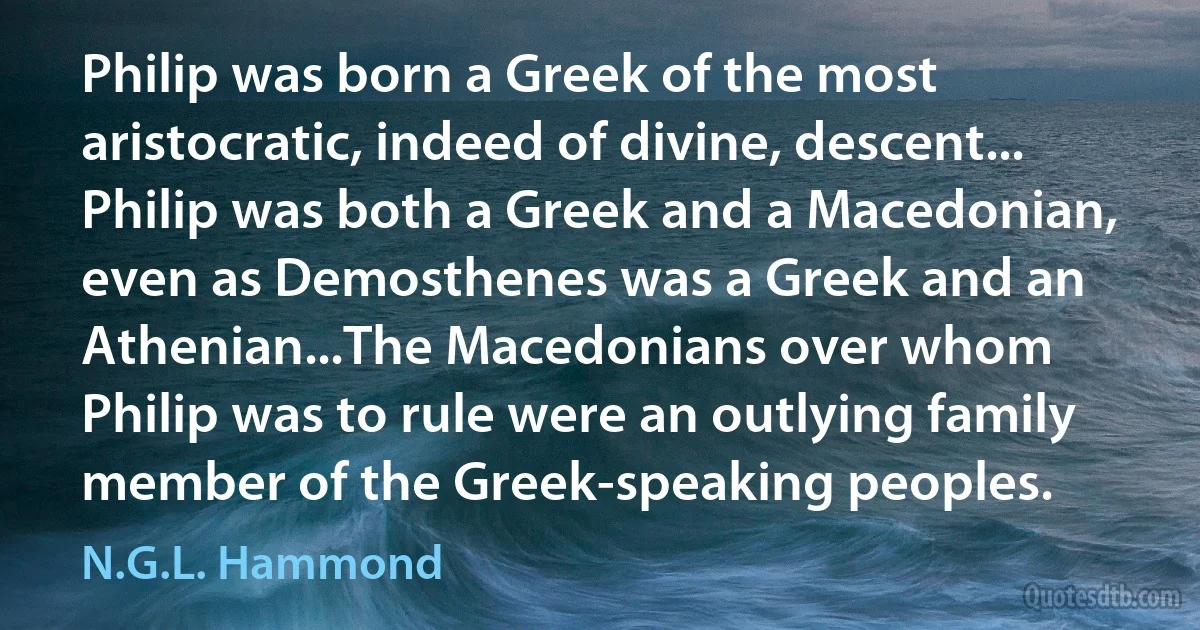N.G.L. Hammond quotes
As subjects of the king the Upper Macedonians were henceforth on the same footing as the original Macedonians, in that they could qualify for service in the King's Forces and thereby obtain the elite citizenship. At one bound the territory, the population and wealth of the kingdom were doubled. Moreover since the great majority of the new subjects were speakers of the West Greek dialect, the enlarged army was Greek-speaking throughout.

N.G.L. Hammond
The terms for the Phocians were mild by Greek Standards (one Greek state proposed the execution of all the men) disarmament, division into village-settlements, payment of all indemnity to Apollo and expulsion from the Amphictiony. In their place the Macedonians were elected members. The two votes of Phocis on the council were transferred to the Macedonian state.

N.G.L. Hammond
There were two parts of the Greek-speaking world at this time which did not suffer from revolution and did not seek to impose rule over the city states. In Epirus there were three clusters of tribal states, called Molossia, Thesprotia and Chaonia[...]the other part of the Greek-speaking world extended from Pelagonia in the north to Macedonia in the south. It was occupied by several tribal states, which were constantly at war against Illyrians, Paeonians and Thracians.

N.G.L. Hammond
At the end of the bronze age a residue of Greek tribes stayed behind in Southern Macedonia[...] one of these, the "Makedones" occupied Aegae and expanded into the coastal plain of lower Macedonia which became the Kingdom of Macedon; their descendants were the Macedonians proper of the classical period and they worshipped Greek gods. The other Greek tribes became intermingled in upper Macedonia with Illyrians, Paeonians and Thracians[...] in the early 5th century the royal house of Macedon, the Temenidae was recognised as Greek by the Presidents of the Olympic Games. Their verdict was and is decisive. It is certain that the Kings considered themselves to be of Greek descent from Heracles son of Zeus. "Macedonian" was a strong dialect of very early Greek which was not intelligible to contemporary Greeks.

N.G.L. Hammond
Hesiod first mentioned 'Makedon', the eponym of the people and the country, as a son of Zeus, a grandson of Deukalion, and so a first cousin of Aeolus, Dorus, and Xuthus; in other words he considered the 'Makedones' to be an outlying branch of the Greek-speaking tribes, with a distinctive dialect of their own, 'Macedonian.

N.G.L. Hammond
N.G.L. Hammond
Occupation: British HistorianBorn: November 15, 1907
Died: March 21, 2001
Quotes count: 9
Wikipedia: N.G.L. Hammond

